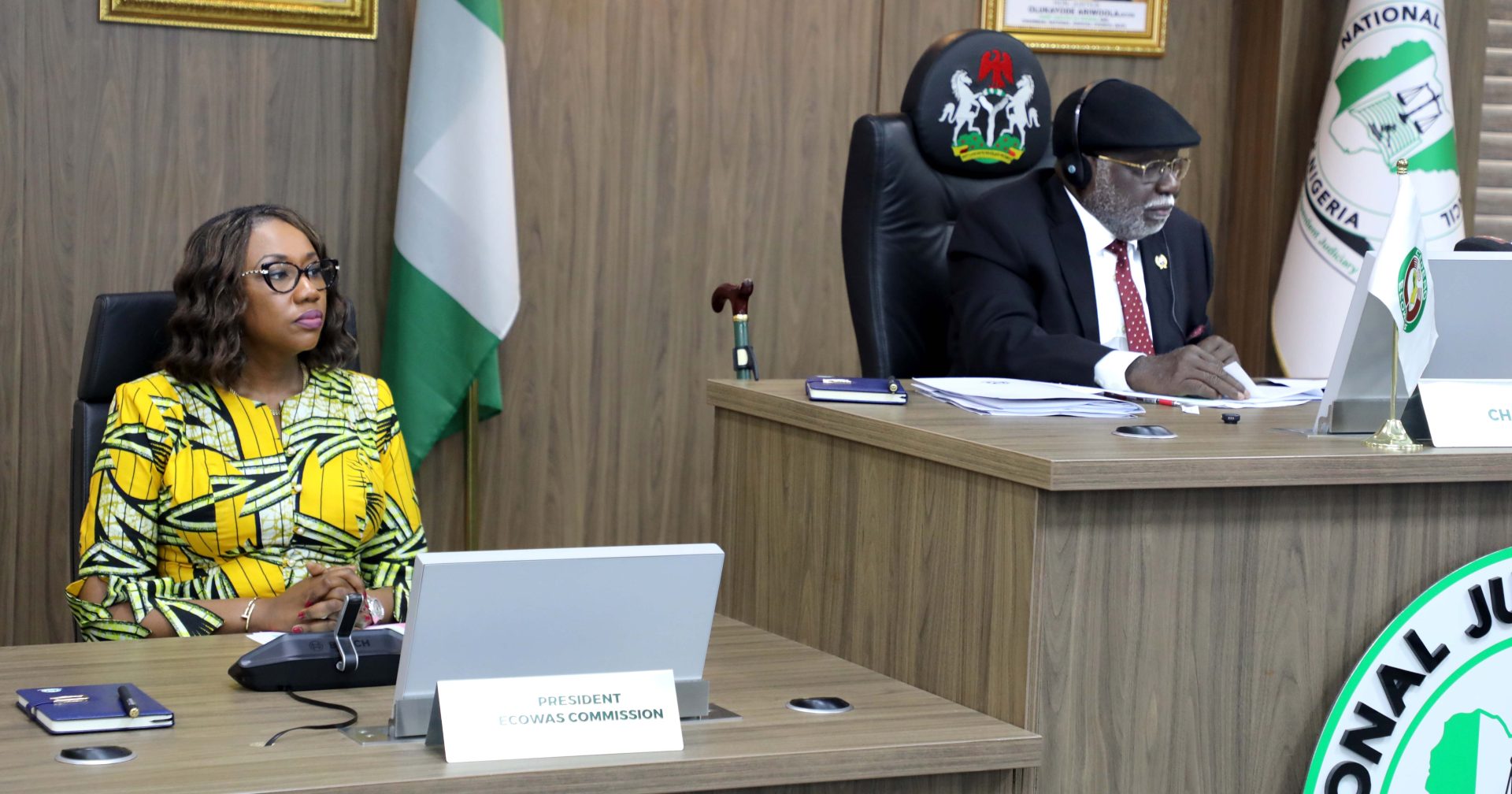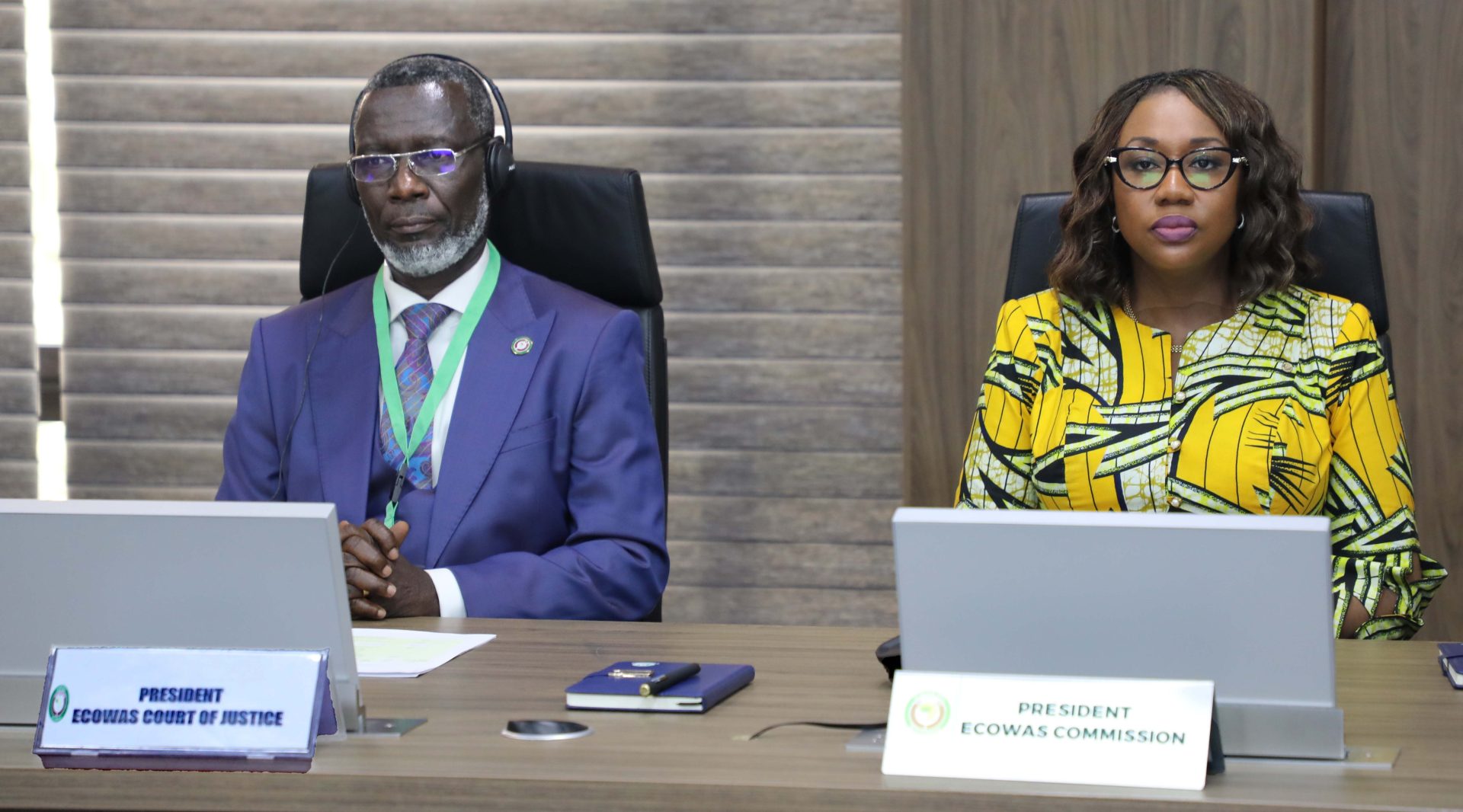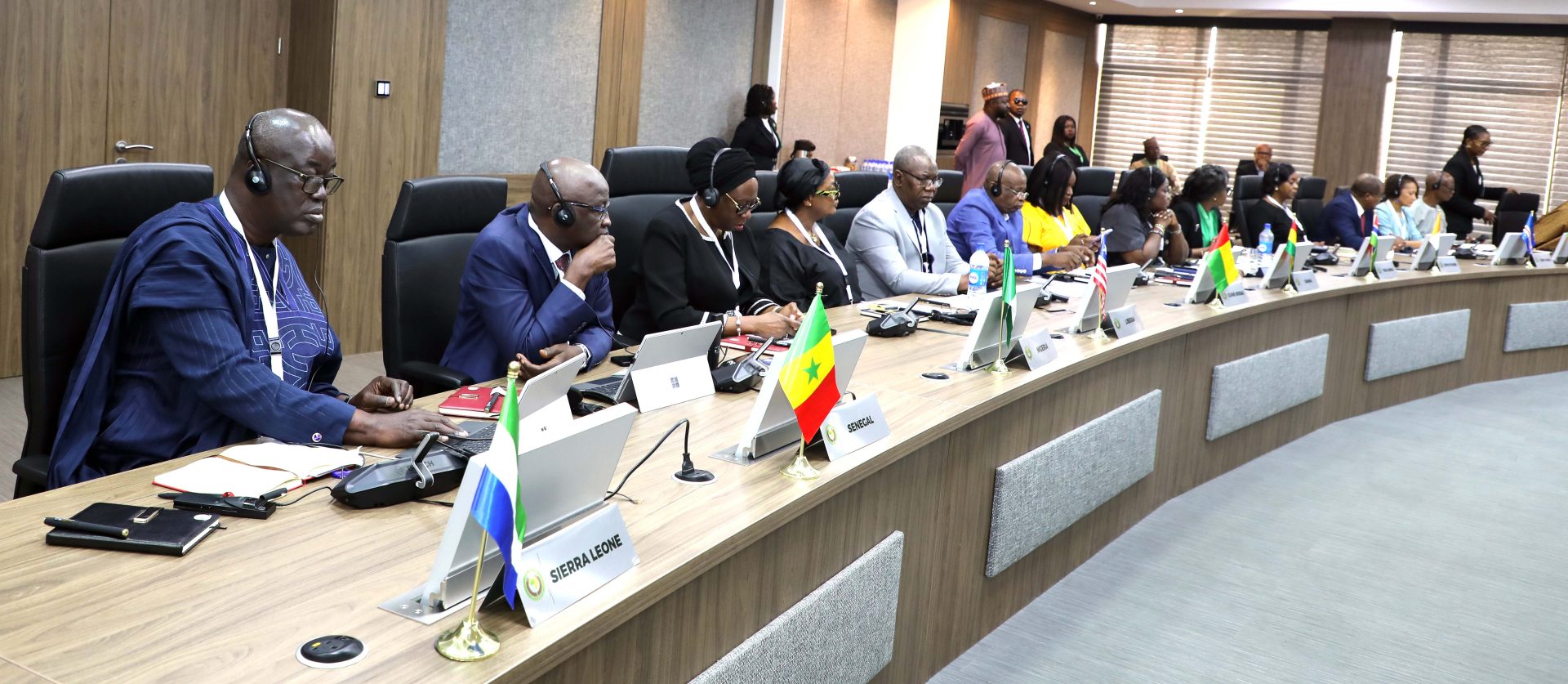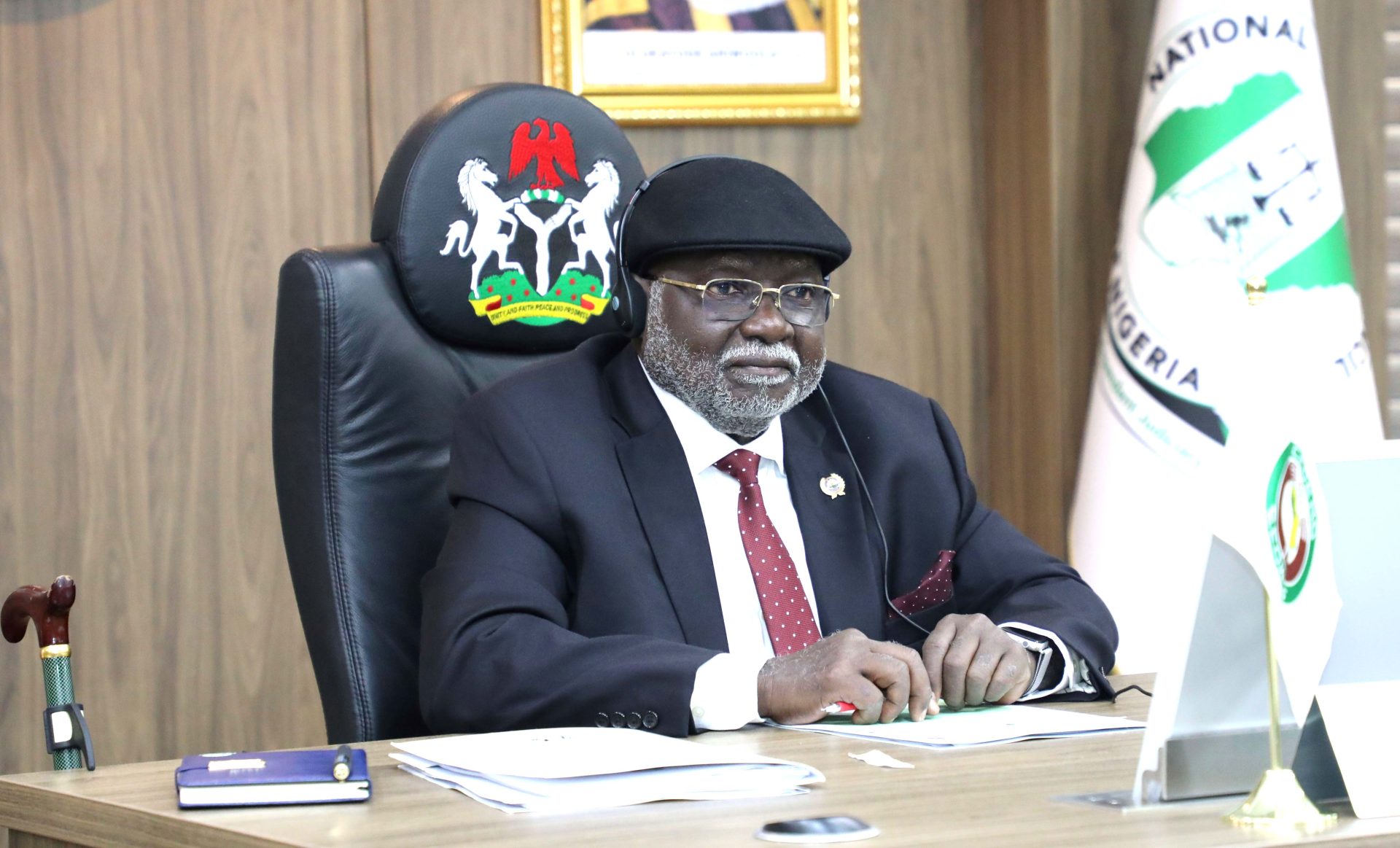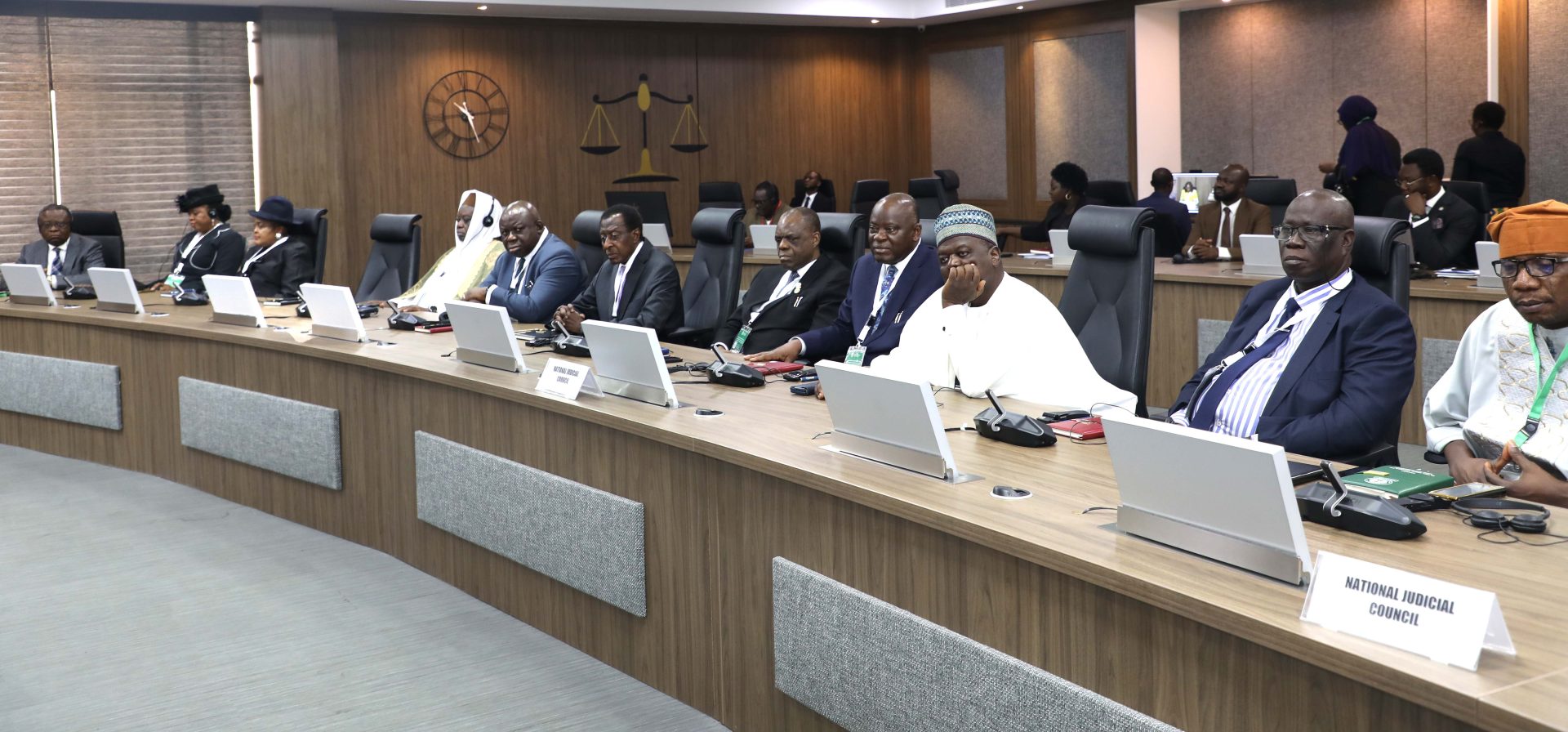ECOWAS Judicial Council discusses how to improve its functioning and that of the Community’s Court of Justice
29 May, 2024The execution of judgements of the Court of Justice of the Economic Community of West African States (ECOWAS) remains a major problem in the effective fulfilment of the mandate and responsibility of the judicial institution towards the citizens of the community.
This was the observation made by the Vice-President of the ECOWAS Commission, Mrs Damtien Larbli Tchintchibidja, at the opening of the statutory meeting of the Judicial Council of the regional organisation on Monday 27 May 2024 in Abuja, Nigeria.
Speaking on behalf of the President of the ECOWAS Commission, Dr Omar Alieu Touray, Mrs Tchintchibidja recalled that the additional protocol relating to the said Court, also known as the Community Court, provides for a role for national judicial institutions in the enforcement of these judgements. “I think the time has come to take deliberate steps to meet this challenge,” she said.
She recalled the crucial role of the judiciary in conflict prevention through the promotion and defence of the rule of law and human rights. To this end, she suggested the institutionalisation of more regular meetings of the Judicial Council, to ensure that the Court’s activities benefit from the Council’s regular review and guidance.
On behalf of the President of the ECOWAS Commission, she expressed her deep gratitude to the members of the Council for the guidance they give to the Community’s judicial body, the ECOWAS Court of Justice. “Over the years, the Community Court of Justice has been a point of reference for the ECOWAS institutions, as well as for individuals, entities and governments seeking advice, arbitration and decisions,” said Mrs Tchintchibidja.
She said that the regular session of the statutory meeting of the Judicial Council of ECOWAS was necessary to address issues related to the effective functioning of the Community Court. It should also ensure excellence and high standards of conduct among judges in terms of their independence, impartiality, integrity, competence and diligence.
The President of the Court of Justice of ECOWAS, the Honourable Justice Edward Amoako Asante, recalled that since its creation, his institution has served as a beacon of hope for the peoples of West Africa, providing a platform for conflict resolution and the protection and enhancement of human rights.
Our commitment to uphold the principle prescribed in the ECOWAS Treaty remains firm to serve as a guideline in our quest for a more just and equitable society in West Africa,” he said.
The Chief Justice of Nigeria and President of the Judicial Council of Ecowas, the Honourable Justice Olukayode Ariwoola, spoke along the same lines of a more just and equitable West African society.
“Together, we bear a heavy responsibility to safeguard the principles of justice, uphold the rule of law and advance the cause of peace and prosperity for the millions of people we serve. I am convinced that our collective efforts will continue to shape the future of justice in our region”, he said.
This statutory meeting will have to decide on the recommendations made by the two committees set up at the last meeting of the Judicial Council of ECOWAS, held in Abuja in February 2024, to examine crucial issues concerning both the Court and the Council.
The first committee is expected to propose solutions to problems relating to the implementation of the Court, while the second was tasked with examining the rules and procedures of the Council and all related issues linked to the effective functioning of the Council.
“Together, we bear a heavy responsibility to safeguard the principles of justice, uphold the rule of law and advance the cause of peace and prosperity for the millions of people we serve. I am convinced that our collective efforts will continue to shape the future of justice in our region”, he said.
This statutory meeting will have to decide on the recommendations made by the two committees set up at the last meeting of the Judicial Council of ECOWAS, held in Abuja in February 2024, to examine crucial issues concerning both the Court and the Council.
The first committee is expected to propose solutions to problems relating to the implementation of the Court, while the second was tasked with examining the rules and procedures of the Council and all related issues linked to the effective functioning of the Council.





